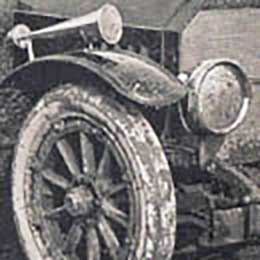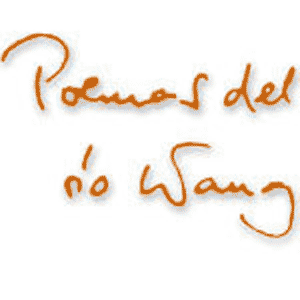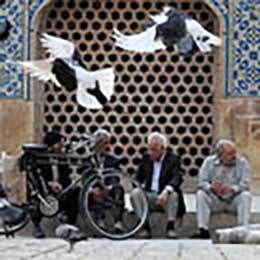
I’m translating the essay of Igor Kopytoff for a Hungarian journal: The cultural biography of things: commodization as a process. A really good, reasoned anthropological analysis on how things become commodities or, on the contrary, how they lose their commodity character for a given culture.
One of his important propositions is that modern Western culture – on the basis of Judeo-Christian and Classical traditions – draws a sharp conceptual distinction between persons and things, and considers only the latter category as commodizable. True, actually persons too have been made commodities in the history of modern Western culture, but the cultural force of this distinction is attested exactly by the fact that slavery has always presented an intellectual and moral problem for the West, in contrast to every other culture.
Kopytoff illustrates this peculiarity of Western approach with an unexpected example, the culturally different relations to abortion:
The cultural clash over abortion was phrased by both sides in terms of the precise location of the line that divides persons from things and the point at which “personhood” begins. For both anti-abortion and pro-abortion forces agree on the point: that “things” but not “persons” can be aborted. (…) In terms of underlying conceptions, both sides here stand together in striking cultural contrast to the Japanese. The latter have few misgivings about abortion but acknowledge the personhood of aborted children, giving them the special status of misogo, lost souls, and commemorating them by special shrines.
This cross-cultural comparison makes me wonder how the Chinese regard this. On the one hand we know that traditional Chinese culture also considered the fetus somehow as a person. The monograph by Bai Limin, Shaping the Ideal Child: Children and Their Primers in Late Imperial China (2005) describes how great importance was attributed to “foetal education” in traditional Chinese thought, and we read the same in the analysis by Rosie Roberts (2005) on Lu Xing’er’s The Sun is Not Out Today (1991), the key novel on Chinese abortion. On the other hand, it seems that – in contrast to the Japanese – after the abortion they deny any ritual relation with and last honors to the fetus that are due to the dead in Chinese culture. They regard it as a kind of raw material, just like the bodies of those executed and died in labor camps, as it was highlighted by the scandals around Bodies the Exhibition.
The Guardian covers the use of aborted Chinese embryos for medical preparations and beauty products. That hospital staff consume and sell them as tonifying and beautifying food was reported in detail in the April 12, 1995 edition of Hong Kong-based Eastern Express from the hospital of Shenzhen (the article that was originally published only in print is fully quoted on a number of sites, although its authenticity has been questioned), and here you can check an illustrated report in Chinese about the practice allegedly widespread in Guangdong (for the strong-nerved only). The fetus was already mentioned among the materia medica of Chinese traditional medicine in the monumental classical medical encyclopedia Bencao gangmu (1587) by Li Shizhen, and when I asked my Chinese doctor friend about it, he just laconically answered “it is rich in nutritive content”.
What is the reason of this contradiction? Perhaps traditional approach was different, and it was only transformed by sixty years of obligatory materialism? It is possible. Or perhaps one is considered as an actual person only after the rite of reception – the cutting of the foetal hair one month after the birth –, and he or she can be deprived of this status at any time with the sentence of the community or of the superiors, as it is attested by a large number of remembrances on the period of the Cultural Revolution? This is also possible. In any case, I will try to make inquiries with my Chinese friends.
But it is also possible that the explanation is rooted in the universalistic thought of Chinese culture, in the world view formulated like this by my friend in the first phrase of his manual of traditional Chinese medicine, translated by me into Hungarian:
Traditional Chinese medicine considers mankind and each person as an organic part of a larger whole, the complete universe. We are ruled by the same laws governing the whole nature: we are companions of the stars, the planets, the animals, the trees, the ocean and the earth.
And if we are part of such a universal system, and we are separated not by sharp borders, but only by gradual differences from the gods on the one hand and from the animals on the other, then the treatment due to various persons also moves on a large scale between the god-like emperor and the animal-like lowest human categories. Of course, in this view the term “animal” is absolutely not derogatory, just like the term “human” does not involve any dignity, for these are not dichotomous and contrasting concepts as in the West, but only grades that follow each other. In such a system a man does not possess an inherent “dignity” arising from his human existence like the Greeks, the Stoics or the Christians say, a dignity that does not depend on his actual place in the hierarchy and of which neither poverty nor defencelesness can deprive him, but only a “face” (面 miàn) that is attributed to him exclusively from his place on this scale, and that he can at any time “lose”, “increase”, “get” or “give”.
I think it is the fascination of this formidable ladder that prevents the Chinese from thinking in equal relations rather than subordination and superiority. (Our friends have made enormous and very honest efforts for twenty years to understand the essence of Western “friendship”, but thus far they have only arrived to a concept of “alternating super- and subordination”.) And this is why all their life is focused on getting higher on this ladder, thus obtaining a “greater face”, the only source of their self-esteem.
“Such was the glory of being a mandarin official. Whenever he went out, a gong sounded announcing his coming, and yamen servants cleared the way, brushing the passers-by away like so much dirt. The yamen servants had always been invested with part of their master’s power and glory. What though they accidentally maimed or killed a man or two! The yamen servants’ only worry was that they might come across another train belonging to an official of higher rank, which would dampen their “fire” a little, or that they might unknowingly kill or maim a man who belonged to that higher official’s household. Then they would cry, “I ought to die! I ought to die!” and actually they might be handed over to the higher official for whatever punishment that official deemed fit, including flogging and imprisonment, law or no law.” (Lin Yutang: My country and my people)
























































































































































Add comment